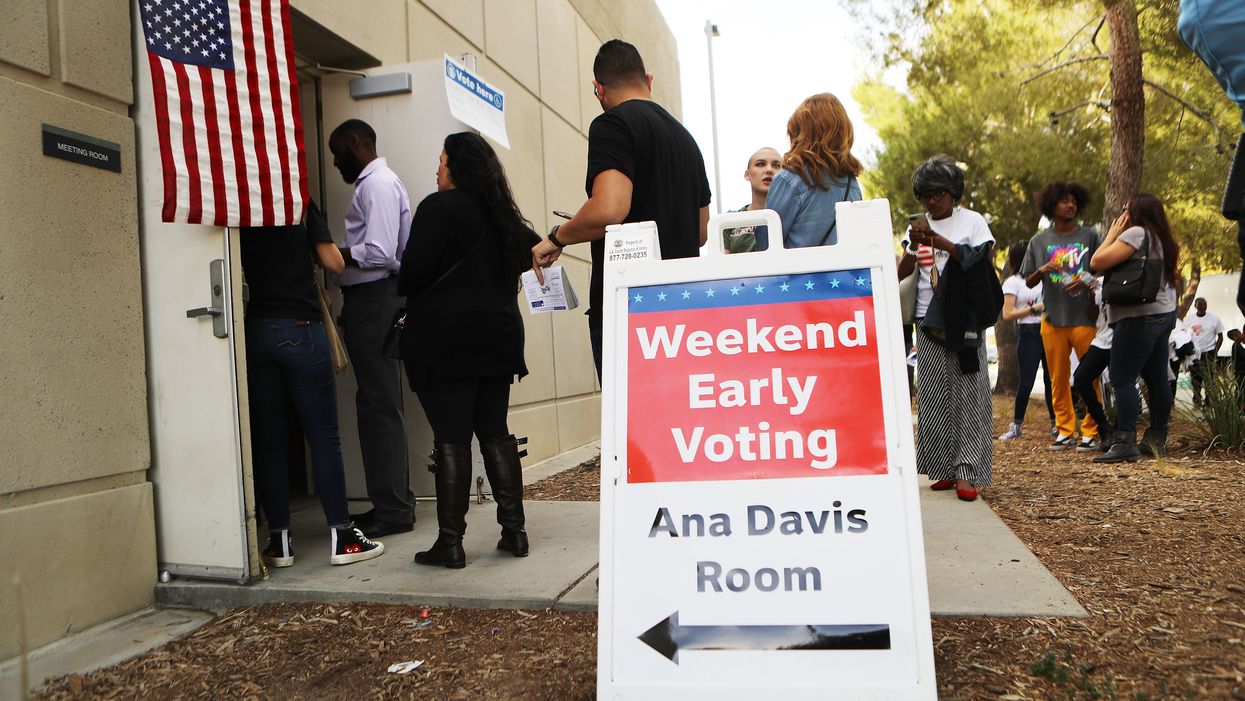Democratic groups are challenging the constitutionality of new state laws written by Republicans to curb early voting in two of the biggest battleground states of 2020.
The Texas Democratic Party and the national Democratic campaign committees filed a federal lawsuit this week alleging a law curbing the use of temporary or mobile early voting sites is unconstitutional. Also this week, those same national committees joined the North Carolina Democratic Party in suing to restore early voting in the state on the Saturday before Election Day.
Turnout will be crucial to the Democrats' attempts to win North Carolina's 15 electoral votes for the first time since 2008 and especially to carry Texas, now the second biggest prize with 38 electoral votes, for the first time since 1976. The party is also expected to make an intense run at GOP Sen. Thom Tillis in North Carolina and a longer-shot quest to unseat GOP Sen. John Cornyn in Texas.
Both laws at issue were enacted last year and appear to have their strongest potential impact on younger voters.
The Texas statute is an attempt to limit youth voting in particular by reducing polling places on college campuses, one suit maintains. "In direct contravention of the 26th Amendment," the complaint alleges, the state enacted the law "with the intent and effect of preventing newly-enfranchised young Texans from effectively exercising their right to vote."
The groups are asking a judge to block the law, which has already led to the closure of temporary voting sites on campuses ahead of next week's statewide balloting on 10 potential amendments to the Texas constitution.
The North Carolina measure eliminated the option to vote on the Saturday before the November election, which was the most popular day for early voting in the 2018 midterm, according to the complaint. The assembly later overrode a veto by Democratic Gov. Roy Cooper to keep the new restriction in place.
Saturday early voting is popular among African-Americans and young voters, the complaint alleges, which is why Republican legislators sought to end the practice ahead of the coming presidential election.




















